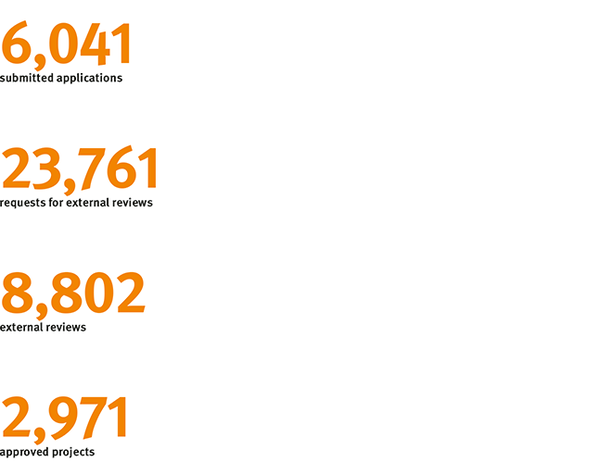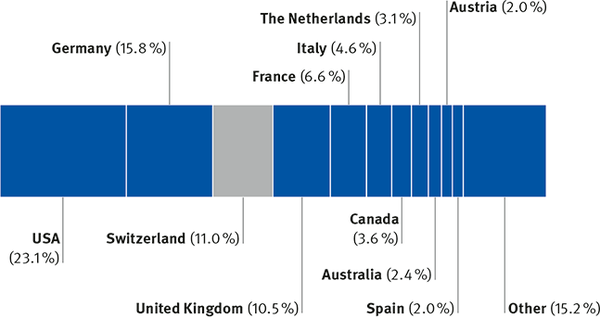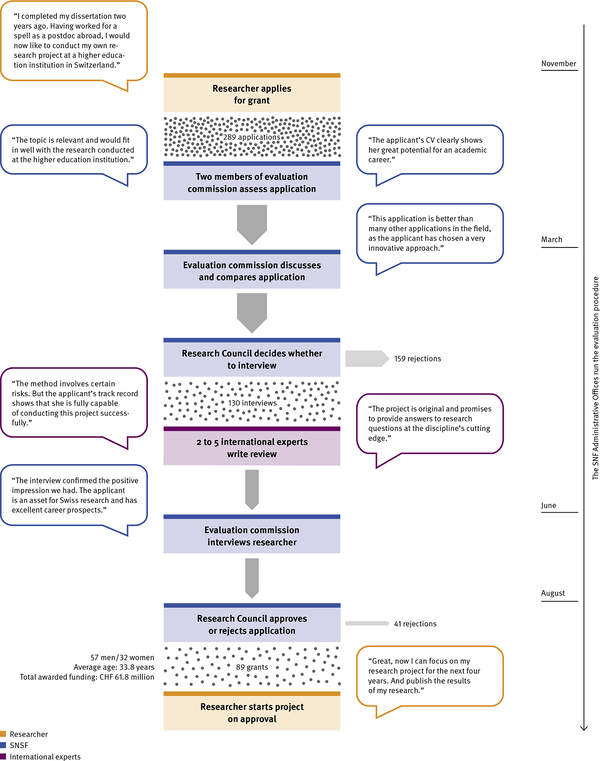Maximum benefit
“All the approved applications have convinced evaluators of their high scientific quality,” says Matthias Egger. “This ensures that government money generates maximum benefits for science, the economy and society.”
Only one participant in a casting call or in orchestra audition actually wins. Thanks to the selection process conducted by the SNSF, around 3,000 new research projects were funded in 2017. They will enable Swiss research to maintain its leading position in the international science world.
A casting call for the best research projects
Thousands of researchers submit applications to the SNSF each year. All of them want to convince the evaluators that they are worthy of financial support. But it’s not an easy task.
2017 figures

Candidates who answer a casting call or audition for an orchestra attempt to outdo their rivals with their technique, musicality and artistic interpretation. Those who want money from the SNSF, with their research project and their scientific track record. “Our decisions are based solely on the quality of the project and the researchers’ qualifications,” says Matthias Egger, President of the SNSF Research Council.
The decision-making process
Project selection starts with researchers submitting their project proposals on the online platform mySNF. The SNSF Administrative Offices check whether the submitted project proposals meet the formal requirements. Subsequently, each application is peer-reviewed by at least two external experts. Based on the reviews, two members of the Research Council assess the proposals and make a written recommendation. The Research Council compares all applications and decides which projects deserve to be funded. This selection process usually takes six months.
Young researchers who apply for career funding are additionally invited for an interview at the SNSF. The figure illustrates this expanded process, taking the Ambizione funding scheme as an example.
Strengths of the SNSF procedure
“To select the best projects, our evaluation procedure must also be the best it can be,” says Matthias Egger. This is how the SNSF endeavours to achieve this:
Clear criteria
The SNSF evaluates the applications on the basis of clearly defined criteria that are also commonly used internationally. Why is the project relevant for science and – in the case of use-inspired research – for the economy and society? How original and topical is it? Have the applicants proposed suitable methods? Is the project financially feasible in view of the given funding period? What scientific achievements do the applicants already have under their belt? The evaluation provides detailed answers to these questions.
- Comparability of reviews
- International standards
Competitors from the whole of Switzerland
All researchers in Switzerland are eligible to submit applications. Projects proposed by higher education institutions, government research centres and private research institutes all compete for the same funds. The competition is prolonged and intense.
- Equal opportunities for government funding
- Quality assurance
International reviews
The SNSF obtains the majority of reviews from experts abroad (see figure). On the one hand, because it wants its evaluation procedure to be international. On the other hand, because in Switzerland researchers working in the same field often know each other and their impartiality might therefore be at risk.
- Pool of international experts
- Input for Swiss research from all over the world
Decisions made by researchers
The Research Council is composed of 100 researchers, all of whom are employed at higher education institutions and research centres. They evaluate research proposals for the SNSF in a part-time capacity. This also applies to the 700 researchers that make up the various evaluation commissions supporting the Research Council. Hence applications submitted by researchers are also assessed by researchers, and not by the SNSF Administrative Offices, corporate representatives or politicians.
- Scientific expertise
- Credible decisions

